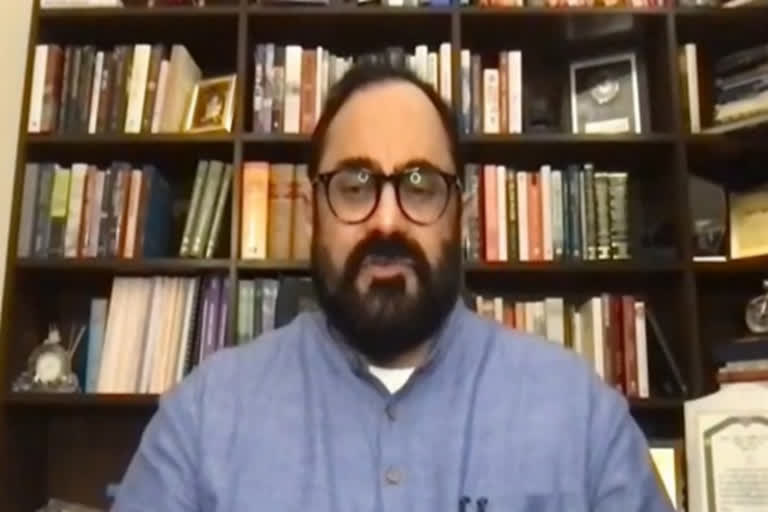New Delhi:The government will not be able to violate the privacy of citizens under the proposed data protection law as it will get access to personal data only in exceptional circumstances like national security, pandemic and natural disasters, Minister of State for Electronics and IT Rajeev Chandrasekhar said. Speaking during an online discussion, the minister said the National Data Governance Framework Policy has provision for handling anonymisation of data -- which is not part of the draft Digital Personal Data Protection (DPDP) Bill 2022.
Chandrasekhar also said the proposed Data Protection Board -- which will adjudicate matters related to data protection -- will be independent and will not have any government officer on the board. While responding to questions around privacy on Twitter Live on Saturday evening, the minister re-phrased the question of a participant to clarify the stand of the government and provisions in the draft DPDP Bill 2022.
"Let us say that the government wants to essentially violate the privacy of citizens with this law. Is it possible? That's the question. The answer is no. The bill and laws lay out in very clear terms what are the exceptional circumstances under which the government can have access to the personal data of Indian citizens.... national security, pandemic, healthcare, natural disaster.
"These are exceptions. Just like freedom of speech is not absolute and is subject to reasonable restriction, so is the right to data protection," Chandrasekhar said. The draft DPDP Bill has exempted certain entities notified as data fiduciaries by the government from various compliances, including sharing details for the purpose of data collection.
The provisions from which government-notified entities will be exempted deal with informing an individual about the purpose for data collection, collection of children's data, risk assessment around public order, and appointment of data auditor, among others. The bill proposes to exempt government-notified data fiduciaries from sharing details of data processing with the data owners under the "Right to Information about personal data".
